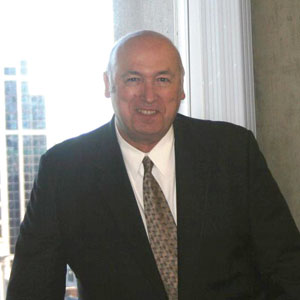
Michael Glavin is ready to step in at the Office of Strategic Planning and Community Development.
Brings corporate,
public sector experience
By Andrew Firestone
Last week, the city named its new head of the Office of Strategic Planning and Community Development, Michael Glavin, who starts on October 17. He is bringing with him 20 years of experience working in community finance in both the public and private sector, including a lengthy stint at Bank of Boston during its eventual transformation into Bank of America. Glavin, a Bostonian born and raised, comes to Somerville from the Boston Redevelopment Authority, where he worked on Harvard University’s expansion into Allston, but brings expansive work in urban finance and business development.
The Somerville News managed to get him on the phone for an interview in which he discussed his work, his thoughts on his new job and his hopes for the future of Somerville.
Somerville News: How will you use your skills to help improve the real estate market and local businesses of Somerville?
Michael Glavin: I think there is an important series of things that has to happen. You certainly have to look at where are your opportunities. I think Somerville has already proven that it has a great number of opportunities and advantages for development, including location, including some of the projected improvements for the transportation plan that’s servicing the area and certainly the leadership that the Mayor brings to the city, that brings continuity in government and the ability to respond to the concerns of the private sector, while still respecting the [sentiments] of the neighborhood. It’s a great setting to bring these skills and to work with the Mayor and the talented team of people who are already there.
SN: One of the most important works done by the city in the last year was the approval of $25 million in bond allocation for the Assembly Square development, part of a tri-party agreement between the city, state and developer Federal Realty Investment Trust. How do you see the future of public-private partnerships in improving the economy of Somerville.
MG: It’s hard to imagine any major or large-scale development or investment in the Northeast or in any urban center happening without having the ability to create opportunities for working partnerships between the public and private sector. Now in striking any fair partnership, it means both parties really have to come to the table with a willingness to meet a common objective. If there is an agreement on the common objective, then both sides can explore what are the resources that are fair to bring to the table.
I really believe that any major development will require some public-private partnership, but component parts of that can change. For instance, where there may be land that has been spoiled over time, similar to the brown-fields situations in our major urban centers, that there’s been a fair response by the public sector to say some of that may be an obligation that we have to take on ourselves, in combination with the investment of private parties. Also, some of the transportation expansion that is projected for Somerville, the private sector is investing in infrastructure that relates directly to the opportunities for the private sector to be involved with some future development.
SN: The Green Line Extension is celebrated as a great idea for the economic development of the region, however delays have caused many in Somerville to doubt it may ever come. What do see the strategy should be moving forward?
MG: I’m confident, having spoken with the Mayor, that the Green Line Extension will be moved forward and effectively realized. I really believe that the Green Line is a significant factor in the ability of the city to attract development. Thinking about it, and how it relates to the entire metropolitan marketplace, it should bring investment by those who want to be in the metropolitan market with clear access to downtown Boston, clear access to the workforce that is in the general Boston area, and the workforce that is resident in Somerville itself. We have the advantage of having a great workforce that comes from a very diverse background.
This combination of linking Somerville and that development area with the Green Line is a very unique opportunity that excites me and is clearly part of the complex plan for the city.















Reader Comments